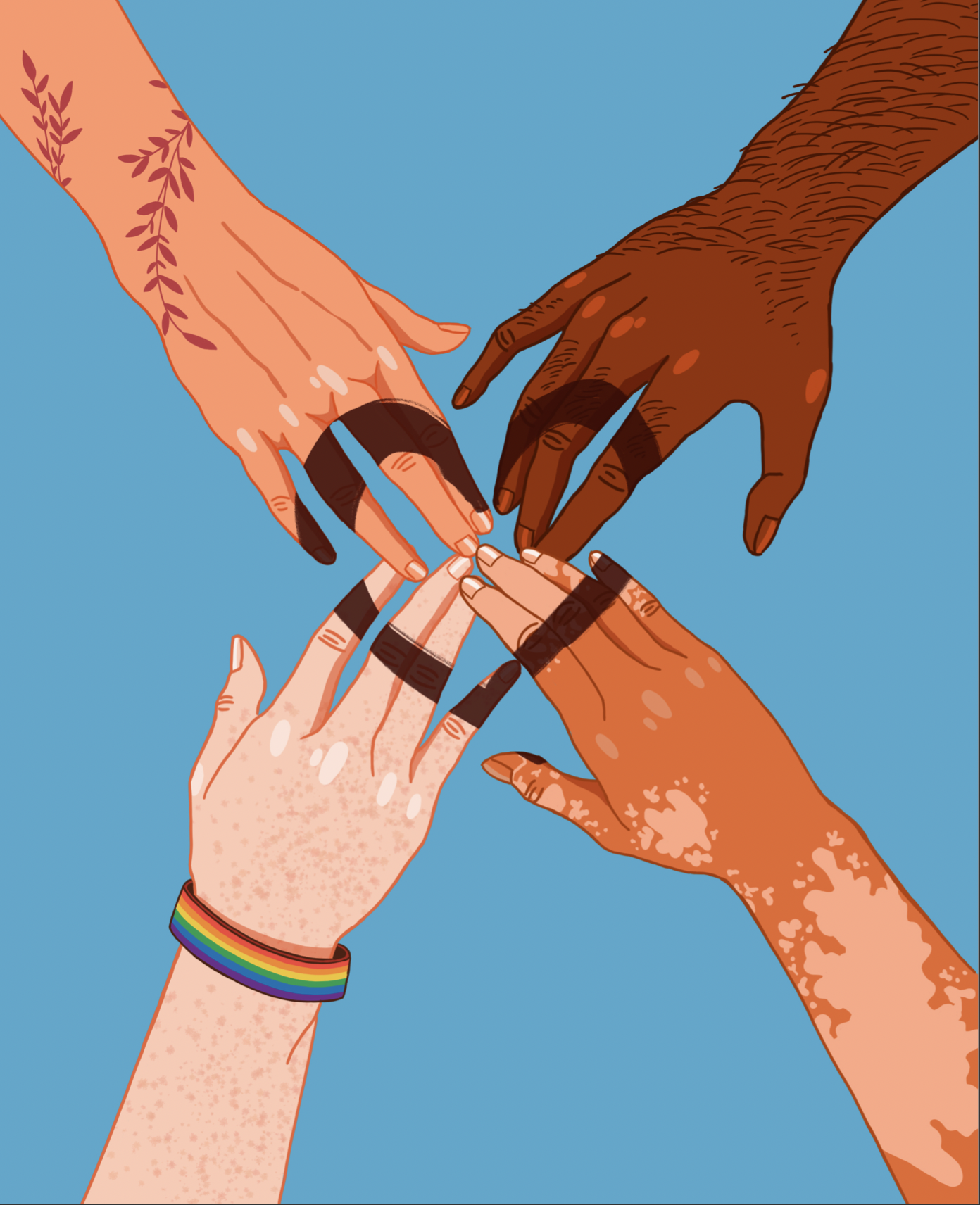Svilena Babukchieva for Fine Acts (CC-BY-NC-SA).

Director's update: Human rights at the crossroads
As the year end looms, ISHR executive director Phil Lynch shares reflections on the context in which we operate, the importance of applying a principled, non-discriminatory approach to human rights, and the crucial work of defenders.
I write at a time when respect for international law and the integrity of the international human rights framework are being challenged in existential ways. At a time when it has never been more important that all situations of human rights violations and abuses are dealt with on their merits, applying objective criteria in a principled, consistent and non-discriminatory way.
Today, tragically, it befalls us to reaffirm that:
- All peoples have the right to self-determination
- All people have the right to live with dignity and to access the essentials of life, including adequate food, housing and water
- All people have the right to be protected from systemic discrimination
- All attacks that target or indiscriminately harm civilians and civilian infrastructure are unlawful and wrong
- All war crimes and crimes against humanity should be condemned and perpetrators held accountable, whatever the context.
Unfortunately, almost no State is prepared to articulate and stand behind these principles in all situations.
Upholding international law
I’m proud of ISHR’s track record in consistently applying human rights principles in diverse situations. We are indebted to the partners – and particularly the defenders, affected communities, and victims and survivors of violations – who have worked with us to uphold, and held us accountable to, these principles.
Together with the ACLU and the families and representatives of George Floyd and other Black people killed by police, we applied these principles to secure the establishment of a global commission of inquiry on systemic racism.
Together with defenders from Ukraine and Russia, we applied these principles in pushing for the successful establishment of a Commission of Inquiry on Russia’s war of aggression on Ukraine.
Together with civil society partners from Palestine and Israel, we applied these principles in supporting the establishment of a Commission of Inquiry on Israel and the Occupied Palestinian Territory. That Commission’s mandate to investigate violations and to examine root causes of the conflict and violence has never been more important.
And together with ILGA and a global coalition of over 1200 NGOs from 150 countries, we applied these principles in securing the renewal of a vital UN mandate on sexual orientation and gender identity. I’d like to congratulate Graeme Reid on his recent appointment to this important role.
A progressive agenda
Despite the challenging times, ISHR also continues to pursue a progressive agenda.
We’re pleased that the DRC enacted a specific national law on the protection of defenders, the culmination of years of work by ISHR and national partners. In so doing, the DRC joins Cote d’Ivoire, Niger, Burkina Faso, Mali and Mongolia among the countries where we have worked with national partners to secure specific human rights defender protection laws.
Many of you will have also seen the work we are doing with women defenders from Afghanistan and Iran, together with international legal experts, to push for the explicit recognition and codification of the atrocity crime of gender apartheid. This would fill an international protection gap for women and girls, as well as impose responsibilities on third States and non-State actors to take concrete steps to prevent and end gender apartheid.
And as we celebrate the 25th anniversary of the Declaration on Human Rights Defenders, we are coordinating a broad coalition to develop an authoritative new international legal baseline for the protection of defenders.
Power in coalition
Reflecting on our collective wins, we identified three common factors: human rights defenders, international law and mechanisms, and dynamic coalitions that support defenders to strategically leverage international law and mechanisms to contribute to powerful human rights change.
With 2023 marking both the 75th anniversary of the Universal Declaration of Human Rights and the 25th anniversary of the Declaration on Human Rights Defenders, and 2024 marking ISHR’s own 40th anniversary, I’ll close by emphasising that the work of defenders and the integrity of the international framework are integral to the realisation of human rights on the ground.
The promise of the Universal Declaration will only ever be fulfilled when we work in coalition to ensure that defenders are protected and that standards are consistently respected.
